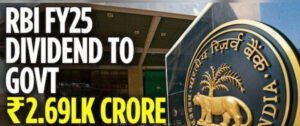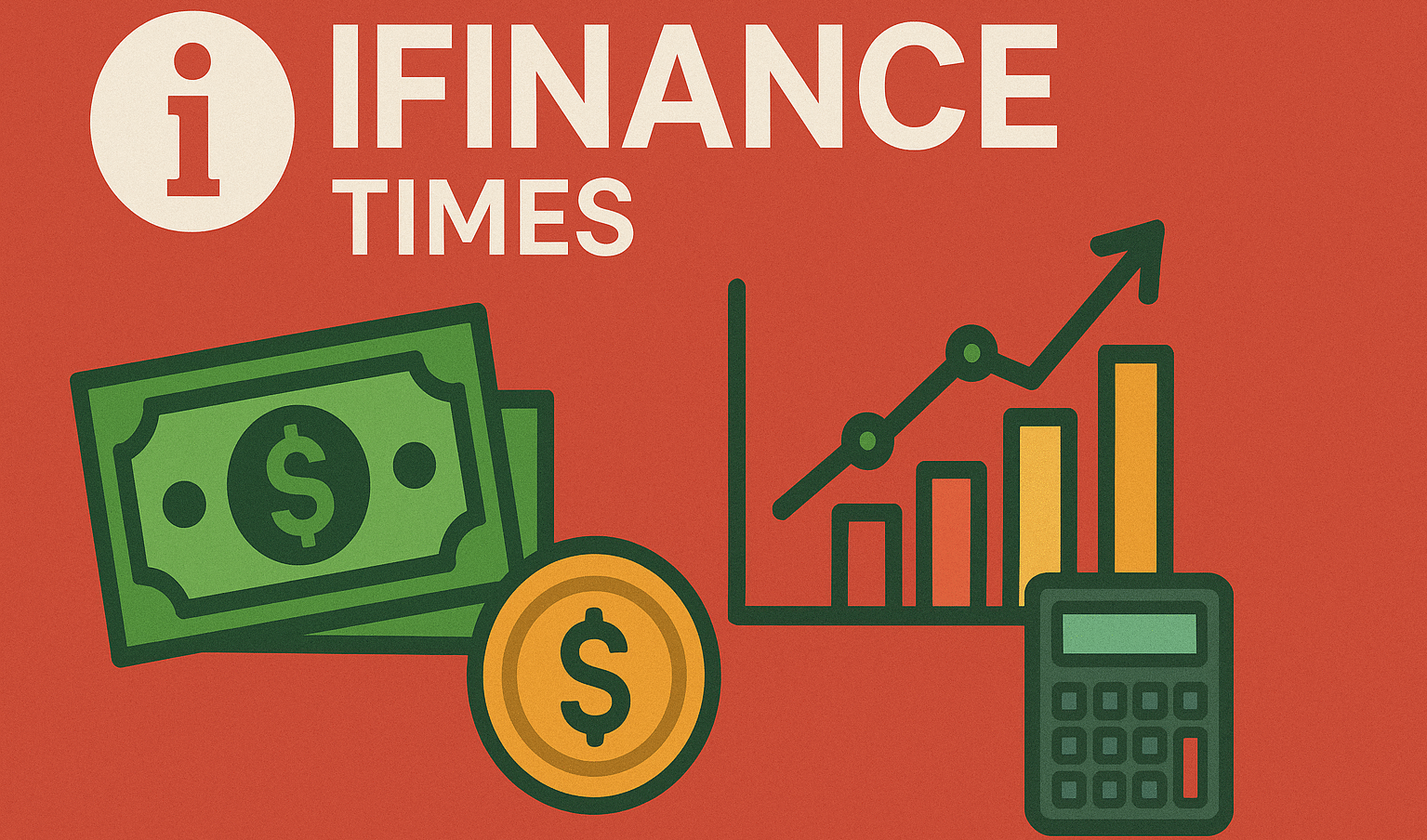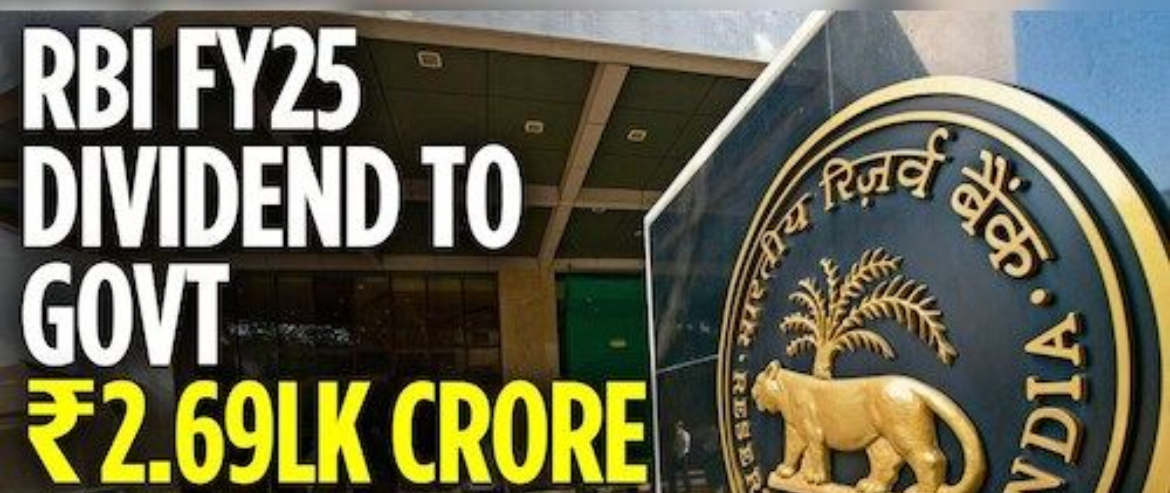RBI’s Record ₹2.7 Lakh Crore Dividend: What It Means for Financial Markets in the Long Run

In a major financial development, the Reserve Bank of India (RBI) has announced a record dividend payout of ₹2.7 lakh crore to the government for FY25. This is the highest-ever surplus transfer from the central bank and is much higher than what was initially expected in the Union Budget. But beyond the big headline, what does this mean for India’s financial markets in the long run?
A Big Boost to Government Finances
First off, this dividend gives the government a welcome cushion. It helps reduce the fiscal deficit — basically the gap between what the government earns and spends. A lower deficit can ease pressure on government borrowing, improve India’s credit ratings, and attract more foreign investment. That’s good news for the stock markets and the broader economy.
More Liquidity, Lower Borrowing Costs
With such a large amount of money flowing into the government’s hands, liquidity in the financial system is likely to improve. That could lead to lower interest rates in the short term and make it cheaper for businesses and individuals to borrow. For financial markets, this generally spells stability and optimism, particularly in the bond markets where yields might drop.
Monetary Policy and Inflation Trade-offs
However, more money in the system can also lead to higher inflation if not managed carefully. The RBI will have to strike a balance between supporting growth and keeping prices in check. Any missteps could make markets jittery, especially if inflation expectations rise.
Sustainability is Key
It’s important to remember that this level of surplus from the RBI may not be a regular feature. This year’s record transfer was helped by high interest earnings and reduced provisions. But depending too much on it in future budgets could be risky. Markets are likely to watch how the government uses this windfall — whether for long-term capital investment or short-term populist spending.
Final Thoughts
In the short term, this dividend is a major positive for markets. It strengthens government finances, boosts liquidity, and lifts investor sentiment. But in the long term, what matters most is how wisely this money is used — and whether the structural reforms continue to make India’s economy more resilient.

